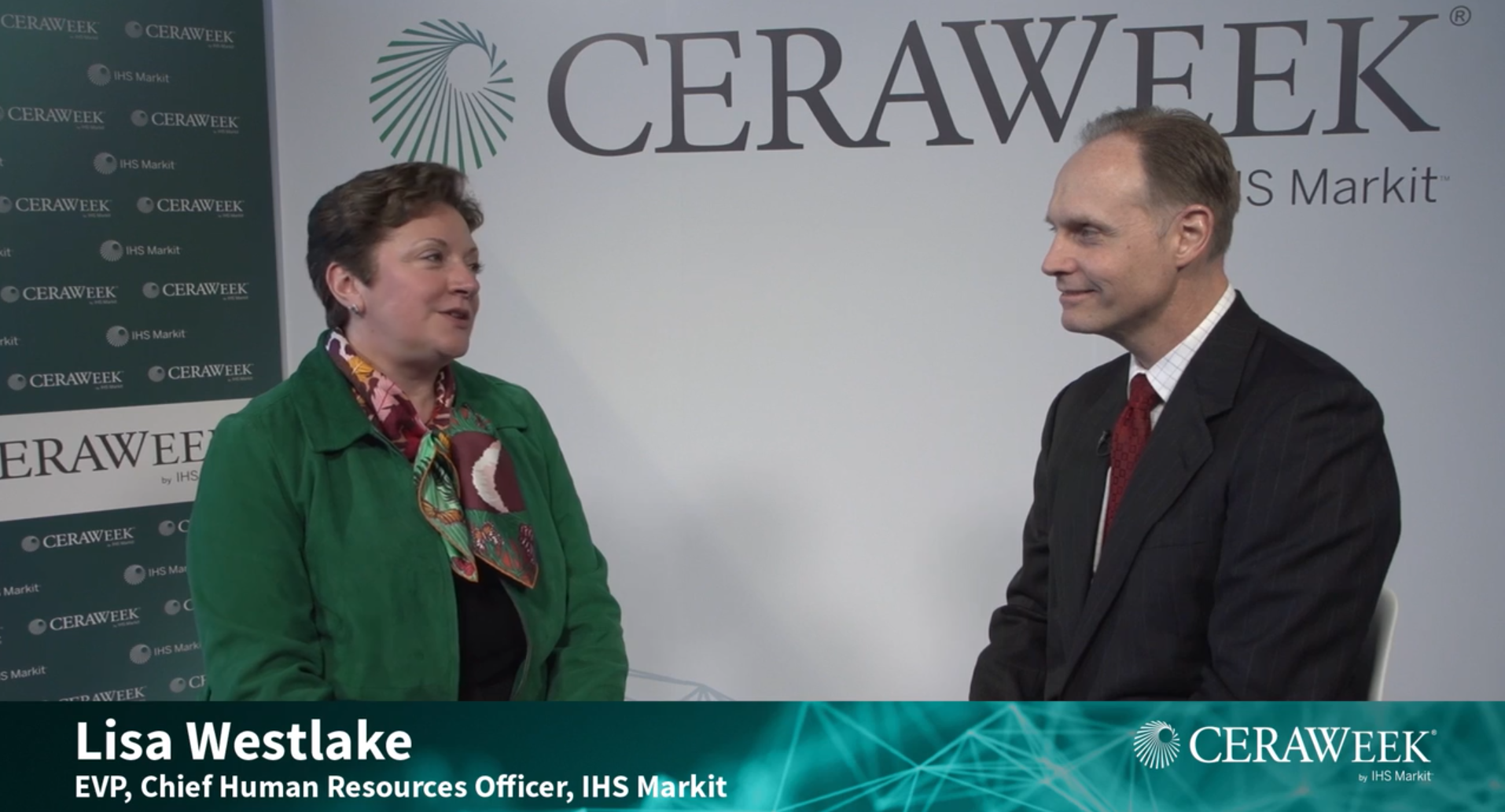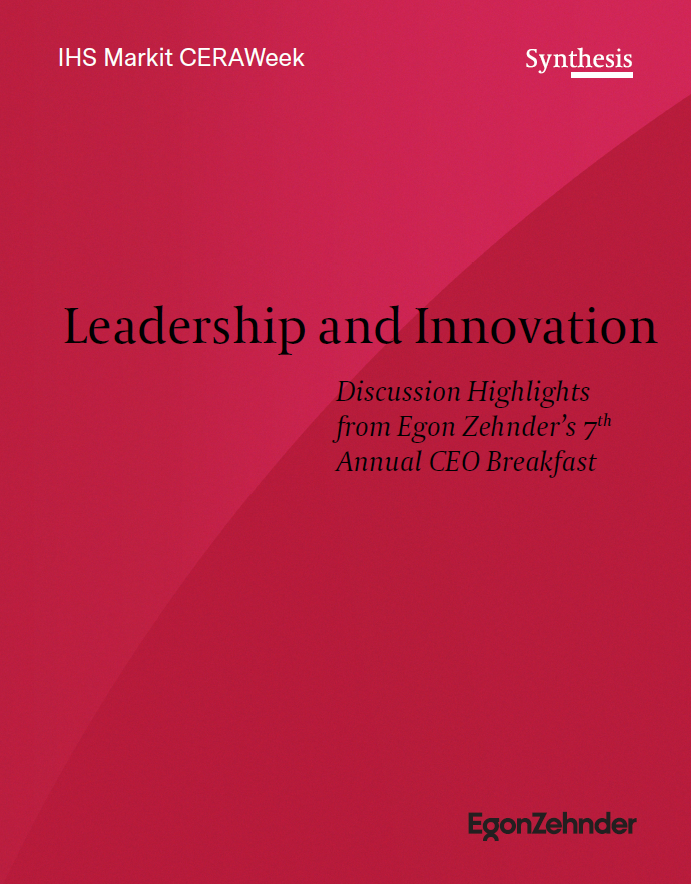
Interview with Trent Aulbaugh
As a sector marked by extended downturn moves into a positive future, energy executives are reflecting on their own approaches to leadership and how they will factor into lasting company success. At Egon Zehnder’s seventh annual CEO Breakfast Panel at IHS CERAWeek 2018, leaders gathered to discuss these critical human capital issues within the sector. This year, the conversation shifted from one dictated by market pessimism of years past to one of proactive leadership imperatives that will enable today’s leaders to think differently while preparing tomorrow’s to take the market into the next phase.
At Egon Zehnder’s 2018 CEO Breakfast, Global Energy Practice Leader, Carol SingletonSlade, moderated discussions about leadership and talent in the energy sector alongside this year’s distinguished panelists:
- Joe Kaeser, President and CEO, Siemens AG
- Charlie Leykum, Founder and Managing partner, CSL Capital Management
- Thierry Pilenko, Executive Chairman, TechnipFMC
Being a leader is about taking risks – going first during challenging times and then letting your team shine.
Being a great leader today is not just about giving great speeches,especially as we are faced with paradigm shifts in the industry like renewables and technology disruption. Being a leader is about taking risks – going first during challenging times and then letting your team shine. Every day, leaders must think from a position of what their competitors would do and understand where they are on the value chain.
Humanizing leadership, while a component of being a great leader,must stand alone as it has never been more important than in today’s business landscape. It’s easy to focus on the technology and innovation challenges facing companies, but leaders must not lose sight of the people. Top-down organizations are becoming more challenged. People crave constant feedback on their interactions and how they are perceived, and younger employees are increasingly favoring flat organizations. Leadership needs to address these shifts, and also deliver in-person communication to employees. Talk to people, admit when something went wrong, be transparent and be human. If you show that you are human, employees will be more inclined to speak up, and the dialogue that openness fosters is invaluable.
Developing future leaders for tomorrow must also be a priority forcurrent executives and boards alike. Identify high potential candidates based on curiosity, insight, engagement and determination, and give them mobility and flexibility within the company. P&L experience, technical capabilities and stretch assignments will create flexible future leaders, which is especially true in Private Equity when identifying leaders for companies that require specialized roles. If a company is seeking to bring on leaders from the outside, ensuring they acclimate to company culture and understand company dynamics is key.
The board must be engaged and understand that succession planning is not about selecting a CEO to lead the current business, it’s about selecting the CEO for five to 10 years
Succession planning is one of the board’s single largest responsibilitiesas it charters a new path forward for a company. The board must be engaged and understand that succession planning is not about selecting a CEO to lead the current business, it’s about selecting the CEO for five to 10 years into the future. Ask what matters to the company today, what will matter in the future, and what might not matter. Look at priority geographical areas. From there, create requirements for new leadership that anticipate the future, and understand that the obvious candidate – the number two in the organization –might not be the ideal choice based on the new set of requirements. PrivateEquity must make succession planning a key area of focus in the immediate future.
Diversity of gender, nationality, age and thought mustbecome leadership imperatives in a sector that has historically lagged in this area – both at the board and executive levels. Identify leadership candidates and coach them to be great company leaders and board members to ensure energy executives and boards do not look and think the same into the future. Encourage diversity of thought and the freedom to speak up, as these factors can mean the difference between success and failure during times of disruption.
Encourage diversity of thought and the freedom to speak up, as these factors can mean the differencebetween success and failure during times of disruption.
Embracing innovation is no longer an option. Industry 4.0 is here anddigitally transforming must be a priority coming out of the downturn. Look to experts in hardware and software to help lead in the digital future and consider how this shifts both executive and board makeup. Also, as Industry 4.0 creates more jobs, consider that it will also eliminate millions of jobs, and those jobs being eliminated have a completely different profile than the new set. The task for today’s leaders is to transform the people who are losing out into ones that can win – show people the future, what’s in it for them and how they can be trained to succeed. Through the disruption, it’s crucial that leaders consider how to generate an environment where this revolution ends in social peace, not just technology creation.






